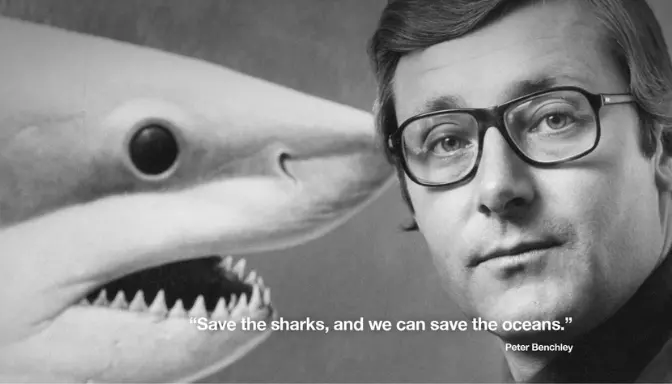Diksia.com - Peter Benchley was a bestselling author, screenwriter and ocean activist who wrote one of the most famous novels of all time: Jaws.
The book, which was published in 1974, became a cultural phenomenon and inspired a blockbuster film adaptation by Steven Spielberg.
But who was Peter Benchley and how did he come to write such a thrilling story about a man-eating shark?
Early life and career
Peter Benchley was born on May 8, 1940 in New York City, the son of author Nathaniel Benchley and the grandson of humorist Robert Benchley.
He attended Phillips Exeter Academy and Harvard University, where he studied English literature.
After graduating in 1961, he traveled around the world for a year and wrote his first book, a travel memoir titled Time and a Ticket.
Benchley worked as a reporter for The Washington Post, an editor for Newsweek and a speechwriter for President Lyndon B. Johnson.
He married Winifred Wesson in 1964 and had three children: Tracy, Clayton and Christopher.
Writing Jaws
Benchley had always been fascinated by the ocean and sharks, and he wanted to write a novel about them.
He pitched his idea to several publishers, who were intrigued by the concept of a shark terrorizing a seaside community.
He received a $1,000 advance from Doubleday and began writing the novel in 1971.
Benchley based his novel on several real-life incidents, such as the Jersey Shore shark attacks of 1916, the sinking of the USS Indianapolis in 1945 and the exploits of shark hunter Frank Mundus.
He also did extensive research on shark behavior, anatomy and ecology. He named his fictional town Amity, after the Latin word for friendship.
Benchley struggled with the writing process, as he had to balance his own vision with the demands of his editor and publisher.
He rewrote the novel several times, cutting out subplots, characters and scenes that he felt were unnecessary or distracting.
He also changed the ending, as he originally planned to have the shark die of exhaustion after a long chase, but decided to have it blown up by an oxygen tank instead.
The novel was published in February 1974 and became an instant bestseller.
It received mixed reviews from critics, who praised its suspense and pace but criticized its characterization and dialogue.
However, readers loved the novel for its thrilling and terrifying story, and it sold over 20 million copies worldwide.
Adapting Jaws for the screen
Benchley sold the film rights to Jaws to producers Richard D. Zanuck and David Brown for $175,000 plus a percentage of the profits.
He also agreed to write the screenplay, along with Carl Gottlieb, who was hired to add more humor and character development.
The film adaptation was directed by Steven Spielberg, who was then a young and relatively unknown filmmaker.
The film faced many challenges during production, such as budget overruns, technical difficulties, bad weather and problems with the mechanical shark.
Spielberg decided to use the shark sparingly and rely more on suspense, music and sound effects to create tension.
The film was released in June 1975 and became a huge success. It broke box office records, received critical acclaim and won three Academy Awards.
It is widely considered one of the greatest films of all time and one of the most influential in the history of cinema.
It also sparked a public fascination with sharks and a fear of swimming in the ocean.
Later works and activism
Benchley continued to write novels that were set in or around the ocean, such as The Deep (1976), The Island (1979), Beast (1991) and White Shark (1994).
Several of his novels were also adapted for film or television, but none matched the popularity or impact of Jaws.
Benchley also became an advocate for marine conservation and education.
He regretted portraying sharks as mindless killers in his novel and film, as he learned more about their vital role in the ecosystem and their vulnerability to overfishing and habitat loss.
He wrote several non-fiction books about sharks and other marine life, such as Shark Trouble (2002) and Shark Life (2005).
He also hosted several documentaries and programs about the ocean, such as Ocean Planet (1995) and National Geographic Explorer (2000).
Benchley died of pulmonary fibrosis on February 11, 2006 at his home in Princeton, New Jersey. He was 65 years old. He is survived by his wife, children and grandchildren.
He is remembered as one of the most influential authors of his generation and one of the most passionate defenders of the ocean.






